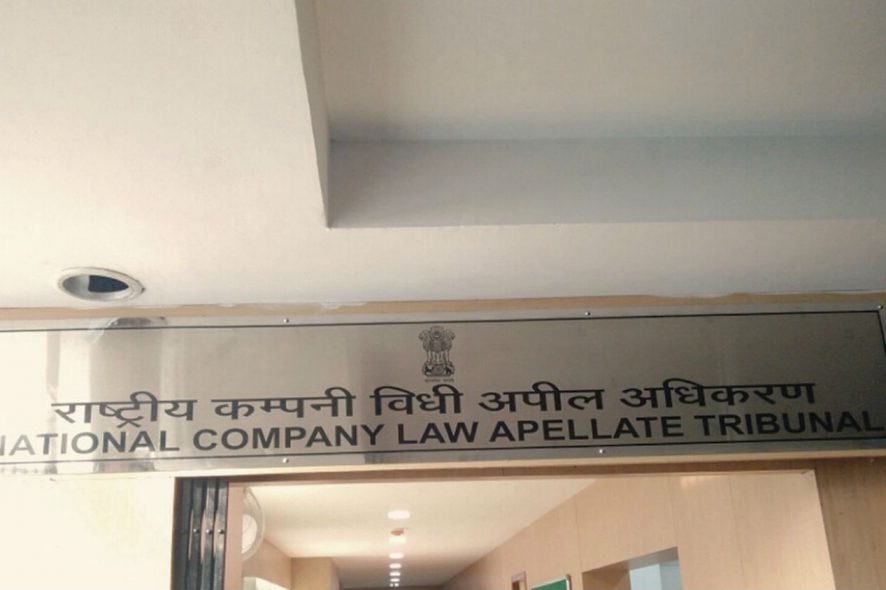National Company Law Appellate Tribunal (NCLAT): The Division Bench of Justice Bansi Lal Bhat (Acting Chairperson) and Dr Ashok Kumar Mishra (Technical Member) observed that:
“I&B Code would not permit the Adjudicating Authority to make a roving enquiry into the aspect of solvency or insolvency of the Corporate Debtor except to the extent of the Financial Creditors or the Operational Creditors, who sought triggering of Corporate Insolvency Resolution Process.”
Present appeal has been heard in ex-parte.
Bench notes that the application of appellant filed under Section 9 of the Insolvency and Bankruptcy Code, 2016 has not been admitted or rejected by the Adjudicating Authority (NCLT, Bengaluru Bench).
Adjudicating Authority disposed of the application directing the respondent to make endeavours for resolution in respect of outstanding debt, failing which the appellant would be at liberty to invoke the arbitration clause contained in the Agreement.
The above finding of the Adjudicating Authority was found to be unique and not in conformity with the provisions embodied in Section 9 (5) of the I&B Code, hence cannot be supported.
Section 9(5) of the I&B Code, 2016:
“9(5) The Adjudicating Authority shall, within fourteen days of the receipt of the application under sub-section (2), by an order—
(i) admit the application and communicate such decision to the operational creditor and the corporate debtor if,—
(a) the application made under sub-section (2) is complete;
(b) there is no repayment of the unpaid operational debt;
(c) the invoice or notice for payment to the corporate debtor has been delivered by the operational creditor;
(d) no notice of dispute has been received by the operational creditor or there is no record of dispute in the information utility; and
(e) there is no disciplinary proceeding pending against any resolution professional proposed under sub-section (4), if any.
- ii) reject the application and communicate such decision to the operational creditor and the corporate debtor, if—
(a) the application made under sub-section (2) is incomplete;
(b) there has been repayment of the unpaid operational debt;
(c) the creditor has not delivered the invoice or notice for payment to the corporate debtor;
(d) notice of dispute has been received by the operational creditor or there is a record of dispute in the information utility; or
(e) any disciplinary proceeding is pending against any proposed resolution professional:
Provided that Adjudicating Authority, shall before rejecting an application under sub-clause (a) of clause (ii) give a notice to the applicant to rectify the defect in his application within seven days of the date of receipt of such notice from the adjudicating Authority.”
The above provision abundantly makes it clear that the Adjudicating Authority has only two options, either to admit Application or to reject the same. No third option or course is postulated by law.
Appellant’s counsel invited Tribunal’s attention to the fact that the Adjudicating Authority took note of the fact that the respondent did not respond to the Demand Notice, demanding the outstanding amount in respect of the four invoices noticed in the impugned order.
Further another point was brought in from the impugned order wherein it was observed that mere acceptance of the debt in question by the Respondent would not automatically entitle the Appellant to invoke the provisions of the Code, unless the debt and default is undisputed and proved to the satisfaction of the Adjudicating Authority.
Bench in view of the above expressed that the Adjudicating Authority should have, in absence of any dispute contemplated under Section 8(2) having been raised by the Respondent as a pre-existing dispute or that the claim of Appellant had been satisfied, proceeded to admit the Application, as no dispute had been raised before it, justifying its disinclination to admit the Application.
We cannot understand as to how the availability of alternate remedy would render the debt and default disputed.
Tribunal further added to its reasoning that
In absence of pre-existing dispute having been raised by the Corporate Debtor or it being demonstrated that a suit or arbitration was pending in respect of the operational debt, in respect whereof Corporate Debtor was alleged to have committed default, the Adjudicating Authority would not be justified in drawing a conclusion in respect of there being dispute as regards debt and default merely on the strength of an Agreement relied upon by the Appellant.
Adjudicating Authority clearly landed in error by observing that the course adopted by it was warranted on the principle of ease of doing business, ignoring the fact that such course was not available to it, ease of doing business only being an objective of the legislation.
Hence, while allowing the appeal and setting aside the impugned order, Tribunal directed the Adjudicating Authority to pass an order of admission. [Sodexo India Service (P) Ltd. v. Chemizol Additives (P) Ltd., 2021 SCC OnLine NCLAT 18, decided on 22-02-2021]






